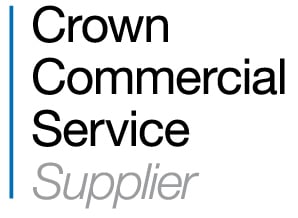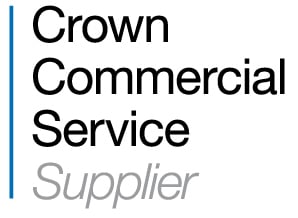How UK Government Works – Structure, Functions, Responsibilities, Power

This is an open programme and an in-house training course, which can be delivered either online or in person. For further information and pricing contact [email protected] or phone on +44 20 7661 7817.

Global Government Forum, as part of Pendragon International Media Ltd, have been named as a supplier on Crown Commercial Service’s Learning & Training Services DPS Framework. All our Learning and Training services are included in the framework.
Crown Commercial Service supports the public sector to achieve maximum commercial value when procuring common goods and services.
Agenda
Session One Overview of Structure and Responsibilities
The Head of State (HRH QE II), Prime Minister, the Government (the Executive), Parliament, Opposition
Devolution (Scottish Parliament, National Assembly for Wales, Northern Ireland Assembly) -responsibilities, interaction with Westminster and Whitehall, interaction with local authorities
Local Government – different types – why? (county councils, district councils, unitary authorities, metropolitan districts, London boroughs)
Mayors, chief executives and leaders – why?
Structure – elected politicians and permanent officers
The Greater London Authority and Assembly
Session Two Power
What happens in No 10 Downing Street?
The power of HM Treasury
The role of the Cabinet Office
The Cabinet (Secretaries of State) / Ministers of State / Spads
The Cabinet Secretary
Scrutiny – checks and balances, ministerial code, the role of parliament (detail after lunch), the courts (judicial review), the Supreme Court
Influence – the power of the media (“the 4th estate”), lobby groups, unions, international partners
Emergency Powers (Covid) and the usual legal framework for public procurement
Questions and Discussion
Session Three Whitehall
Departments of state, machinery of government, examples of some departmental budgets
The civil service code
Interaction between ministers and the department – permanent secretaries, spads, the private office, the parliamentary clerk
The policy process in brief
Questions and Discussion
Lunch
Session Four The Role and Work of Parliament 1
Role and powers
MPs and Peers (Commons and Lords) – electoral cycle, parliamentary terms (Fixed Term Parliament Act), appointments to Lords
What do MPs and Lords actually do? – constituency work, party work (voting), scrutiny of legislation, APGs, committee work
People – the Speaker, clerk of parliament, serjeant-at-arms, leader of the house, Whips, Lord Speaker, committee chairs
Operational Framework – Erskine May, Order Paper, scheduling government business, interaction with the executive
Business in the Main Chamber – introduction of new legislation, debates, PMQs, parliamentary questions, urgent notice questions, private members’ bills
Questions and Discussion
Session Five The Role and Work of Parliament 2
Passage of legislation from first reading to royal assent
Work of committees in the Commons and Lords. Inquiry processes, witnesses and reports
Joint committees
Westminster Hall debates
The Supreme Court – rationale for moving this from the Lords to its new location and stature
Final Questions and Discussion
Close
This is an open programme and an in-house training course, which can be delivered either online or in person. For further information and pricing contact [email protected] or phone on +44 20 7661 7817.
Overview
Our training seminars are based on
- A vast reservoir of knowledge about effective, delivery-focused approaches that are designed to enable you to achieve better results in your place of work
- Expert practitioner and thought-leader experience, covering a comprehensive range of practical knowledge and people skills, to help you to work more productively
- International perspectives and experience, enabling transferability and applicability wherever in the world you are from
Our training team
- Our L&D team have all had successful careers as practitioners in their fields of expertise. They bring their experience, knowledge and skills to support the professional development of other public servants
- Our team all now work as professional trainers, blending practitioner experience with professionally designed L&D solutions
- Between them, our team have provided training for more than 100,000 public servants from 120 countries
Our training ethos
- We deliver people-focused training designed to help you perform better
- We provide practical insights, based on years of experience about what works, combined with practical methods to help you to make it work effectively in your own organisation
- We are here to help you to perform better
Trainer’s Biography
Tony Cash
Tony Cash is an expert on policy, strategy and regulatory best practice. He is a former civil servant and his roles included Head of Strategy and Communications for the Joint Trade Policy Unit and Deputy Director of the Department for Business internal training team.
In his role as a training consultant, he has trained people in policy-making best practice and better regulation across the UK and overseas (including Bermuda, British Virgin Islands, Cayman Islands, Dubai, Guernsey, Ireland, Kenya, Malta and South Africa).
He has worked with many government organisations on impact assessment. He also provides training on many related subjects including change management, governance, leadership, parliamentary affairs, project management, public service reform, risk management and strategic management.
He delivers training in a wide range of formats including online. Tony is also an organisation development expert (MSc OD) and holds qualifications in coaching (Certificate in Executive Coaching), training (CIPD Certificate in Training Practice), project management (PRINCE 2 Foundation and Practitioner) and Neuro-Linguistic Programming.
This is an open programme and an in-house training course, which can be delivered either online or in person. For further information and pricing contact [email protected] or phone on +44 20 7661 7817.

Crown Commercial Service supports the public sector to achieve maximum commercial value when procuring common goods and services.








